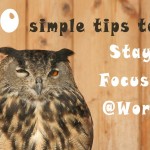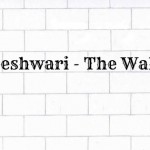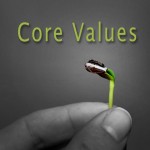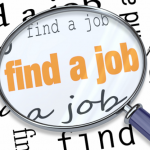John Sumser studies HR practitioner experience. According to him
” I don’t think that there’s one best way to execute HR. I help practitioners find technology and techniques that fit their circumstances. I research those practices.
It’s the experience of the technology that drives and shapes the experience of the job. At KRI we are deciphering and measuring what actually happens at the trench level. We are mapping the facets of the moment to moment experience in HR. I am on the board of advisors of PeopleMatter, RolePoint and Work4. I’ve spent a lot of time helping people build their companies.
I know my way around the HRTechnology universe. I help startups and new executives for existing companies make sense of the terrain. I’m also a seasoned software developer and product development professional.”
You can also follow him on Twitter @JohnSumser
In an interview with Wenger & Watson he spoke about various aspects of HR, his learning and understanding of this Industry and few exceptional tips for the readers..
Ø The 1st Job always holds a special place for an individual, where did you start your career and could you share your learnings of your 1st job?
I began by selling magazine subscriptions and donuts (an American Pastry) door to door. That meant that each door I knocked on needed a customized sales pitch for a commodity good. Over and over again, it was me against the door than me against the prospect. I learned charm, grace and when to run when the prospect got mad! That ability to deliver a customized story on demand has served me very, very well over the years.
Ø In all these years, can you share with us, one of the toughest situations you have had to face at your workplace?
I really like working in tough situations. I help companies whose business is being disrupted find new and better positioning. I also help startups narrow their scope to what is actually achievable and needed. Often, there are two competing factions trying to win the core decision. Navigating both sides of the equation to a satisfactory compromise is something that I get better at each time.
Ø After spending nearly two decades in Westinghouse, what made you launch your own venture?
One word. Desperation.
When I left the comfort of a big organization, I moved thousands of miles from home to try my hand in an industry I’d never worked in before. I discovered that the politics of small organizations are more fierce than their larger counterparts. I was not successful.
That left me thousands of miles from home with no money, three kids, a wife and two large dogs. Can you imagine a better motivator?
Ø What has been your biggest accomplishment so far?
I have been able to follow my own curiosities for over 25 years. Along the way, I’ve been the first HR blogger ever, started and run two different publishing companies and have seen the insides of a thousand companies. I have had a ton of fun while helping my clients and audience continuously see the future.
The biggest accomplishment has been to live a life in which I can not tell the difference between work and play. Mostly, it feels like play.
Ø How has HR intervention changed from the day you started your career to now? (wrt employee engagement, retention, recruitment and policies)?
I don’t think much has changed. HR has a difficult staff role. The people who are actually responsible for results like engagement, retention and recruiting are the line management. It’s HR’s job to support and structure the hard parts of those decisions. But, the real burden falls on people who do not work in HR. Keeping in mind that HR is a customer service kind of operation that simultaneously works for both employees and management is the biggest recurring challenge.
Ø What are the global trends in HR that you see in 2016?
- There will be a rethinking of the engagement topic. The annual employee survey, which has been changing over the last couple of years, is now understood to be outmoded. Repeatedly asking employees to tell you what you want to hear (pulse surveys) show the futility of using surveys as anything other than a tool for prompting specific responses. Instead, more organic tools that expose deep employee sentiment without promising a specific outcome will start to emerge (see BrandAmper.com)
- A heavy emphasis on analytics and predictive analytics will drive a deeper look at the meaning and consequences of measuring the workforce. Issues of privacy and coercion will start to dominate the employee-employer conversation.
- A renewed look at training and development will be required to help optimize human capital in dynamic 21st century organizations. The top Western Enterprise HR providers will be launching learning and development that focus on creating income rather than outcomes.
- Recruiting will continue to refine its focus on communications with likely prospects. Employment branding will get increasingly scientific.
- New payroll tools will take the emphasis off of getting payroll right through many trial runs and onto how to use payroll data for strategic purposes.
- Changes in the economic relationship between employer and employee (contingent work, the gig economy) will prompt new governance models and reframe the social contract. This will happen differently in each of the global cultures.
Ø Finally, Your views on the traits that a new age recruiter should have?
- Curiosity. Recruiting tools change and the latest tool is always the most competitive. Curiosity about new approaches and the willingness to learn them is central to great recruiting
- Empathy. The need for understanding of the difference between the candidate’s POV and the employers’ is critical. They are very different. Misunderstanding this creates a ton of pain. This is the topic of the Candidate Experience movement.
- Interviewing for depth. Most people don’t know how to ask questions that reveal the info you want.
- Patience. Enough said
- Persistence. It takes focus, vision and relentless action to recruit just the right person for the job







